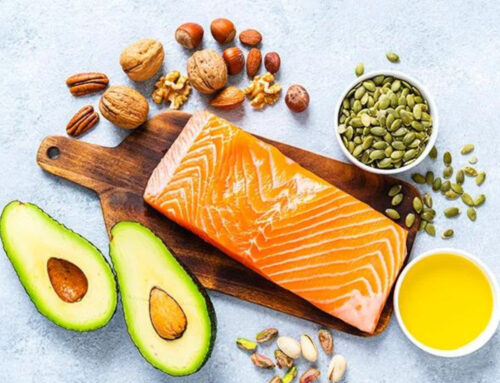I always get excited when I see a new study on intermittent fasting. If you’ve been fasting for a while, you already know that going most of the day without food is one of the best (and simplest!) ways to improve your health.
But getting the medical community to recognize fasting takes time and careful research. Doctors tend to be very cautious about recommending new lifestyle changes to patients—which is why I’m especially thrilled to tell you about a recent landmark paper on fasting and health.
The New England Journal of Medicine (NEJM) recently published a huge review on intermittent fasting and health. That’s exciting news for two reasons:
- The results of the review were overwhelmingly positive. The researchers concluded that fasting has a variety of benefits, all of which are supported by research—from weight loss and longevity to more niche benefits, like relieving asthma.
- Fasting is getting recognition in the medical community. The NEJM is one of the most prestigious medical journals in the world. A lot of doctors turn to the NEJM to keep up to date on the latest health research. The fact that the NEJM is focusing on intermittent fasting is great news because it means fasting works, and doctors are starting to realize that it works.
Let’s break down the biggest takeaways from the study. We’ll cover a few topics, including:
- The benefits of intermittent fasting
- Why fasting works
- The 3 different ways to fast
- Final thoughts
6 Research-Backed Benefits of Intermittent Fasting
If you’re new to fasting, here’s a very quick breakdown of how it works.
Intermittent fasting is simple: you don’t eat for most of the day, then you fit all your meals into a shortened window of time. For example, you might skip breakfast and lunch and only eat between 2PM and 8PM.
For such a straightforward change, fasting comes with major benefits. The NEJM review highlights six of them, all backed by recent clinical research. They are:
- Weight loss
- Resistance to stress
- Better brain function
- Longevity
- Decreased inflammation
- Metabolic flexibility
1. Weight Loss
Intermittent fasting is a great tool for weight loss. The NEJM review cites six short-term studies[*] and one year-long study[*], all of which found that intermittent fasting was as effective as standard dieting at helping people lose weight.
However, there are some important differences between fasting and standard dieting. A lot of people prefer fasting to normal dieting because with fasting, you can frontload your hunger for the first part of the day, then have a big, truly satisfying meal in the afternoon or evening. You can eat until you’re full, every day, and still lose weight, instead of feeling constantly deprived.
The review’s authors also note that fasting comes with a lot of unique benefits that extend beyond weight loss (you can read about them below), while standard diets do not.
If you’ve struggled with normal dieting before and you want to lose a few pounds, intermittent fasting could be good for you, especially if part of your weight loss struggle is feeling hungry all the time.
2. Long-Term Stress Tolerance
The review also found that fasting makes your cells more resistant to stress—and that the stress resilience you gain while fasting lasts long-term.
Fasting causes a number of positive changes to your cells, including[*][*]:
- More antioxidant production (which protects against stress)
- DNA repair
- Lower inflammation
- Stronger mitochondria (that produce more energy)
- Autophagy (repairing or replacing damaged cells with pristine new versions)
Basically, fasting makes your cells faster, stronger, younger, and more efficient, and those changes remain after you break your fast. The reason is that fasting causes positive stress in your cells, much like exercise causes positive stress in your muscles.
In the NEJM review, the authors note that you did not evolve to eat three square meals a day. Our ancestors would go through periods of little to no food (essentially intermittent fasting), with the occasional huge meal—hunting and eating an animal, finding a cache of wild fruit, and so on. As a result, our bodies evolved to respond positively to lack of food.
It makes evolutionary sense. If you haven’t eaten in two days, you need to be clear headed, energized, and quick on your feet so that you can hunt an animal or find edible plants.
There’s a limit, of course. You don’t want to go a month without food. But fasting for up to a few days actually makes you stronger, not weaker. If you do an occasional intermittent fast, your body will become better at handling stress.
3. Better Memory and Brain Function
Fasting is good for your brain, too.
The review looks at several studies on fasting and brain function. Here’s the brief summary:
- A large, two-year study of healthy adults found that fasting improved working memory (your ability to hold information in your head while you do a task)[*].
- Short-term fasting improved verbal memory in older healthy adults[*].
- In a two-year study of overweight older adults, fasting improved verbal memory, executive function (planning, focus, self-control), and overall cognition (acquiring knowledge and thinking about things in the abstract)[*].
- Fasting causes a dramatic increase in brain-derived neurotrophic factor (BDNF), a protein in your brain that increases neuroplasticity and resistance to mental stress and speeds up learning[*].
If you’ve ever done a fast, there’s a good chance you felt a difference in your brain function. Mental clarity is one of the most common benefits people report. Researchers believe part of the reason is ketogenesis—your body starts burning fat for fuel instead of sugar, creating little bundles of energy called ketones. Ketones are your brain’s preferred fuel source, which could explain why you get a mental boost during fasting.
4. Longevity
Growing evidence suggests that fasting increases lifespan and keeps you in good mental and physical shape as you age.
The review notes that Okinawa, an island in Japan with one of the longest-living populations in the world, incorporates daily intermittent fasting as part of its culture[*]. While correlation isn’t causation, they believe daily fasting could explain, in part, why Okinawans live so long.
A large-scale, long-term study found that daily calorie restriction enhanced several markers of longevity, including improved cardiovascular risk factors, better hormone function, and better cognitive function.[*]
Fasting increases antioxidant production in your cells, which protects against oxidative stress[*][*]. Longevity researchers believe oxidative stress is one of the main drivers of aging, and that reducing it with fasting could slow the rate at which you age[*][*].
Fasting also promotes autophagy, which is like spring cleaning for your cells. During autophagy, your cells replace any old or damaged parts with shiny new versions. Animal studies have found that fasting causes autophagy across the body, including profound autophagy in the brain[*].
Autophagy could explain, in part, why fasting seems to promote a longer, healthier life.
Finally, animal studies are very clear: fasting extends lifespan dramatically in mice and rats[*]. Animal studies on their own are not enough evidence to understand how something affects people, but taken in addition to all the human research on fasting and aging, you can make a convincing case that fasting helps you live longer and better.
5. Decreased Inflammation
Fasting reduces inflammation across the body and brain. It protects you from oxidative stress, which is one of the main causes of inflammation[*][*]. Fasting also directly reduces inflammatory markers[*][*].
In fact, fasting is so good at reducing inflammation that the review’s authors suggest it as a way to relieve inflammatory diseases. One study found that alternate-day fasting significantly reduced asthma symptoms in lifelong sufferers[*], and another study found that fasting relieved symptoms of arthritis[*].
Lowering inflammation can decrease muscle and joint pain, help you recover faster from exercise, slow down aging, and even promote weight loss. Fasting may be a good way to keep inflammation in check so you feel your best.
6. Metabolic Flexibility
Intermittent fasting causes your body to do something called “metabolic switching”—essentially, you bounce back and forth between using ketones (fat) and glucose (sugar) for energy throughout the day.
Regularly switching fuel sources trains your cells to work together with greater efficiency. To quote the review’s authors:
“[Metabolic switching] elicits highly orchestrated systemic and cellular responses that carry over into the fed state to bolster mental and physical performance, as well as disease resistance.”
In other words, you think and feel better and become more resistant to disease when you do metabolic switching on a regular basis[*][*].
Fasting enhances your metabolism, stress tolerance, brain function, and resistance to disease. It helps you lose weight and reduces inflammation. All in all, it’s one of the best things you can do for your performance.
But what’s the best way to fast?
3 Different Ways to Do Intermittent Fasting
The review notes three intermittent fasting strategies that had positive results in studies. They are:
- Daily fasting
- Alternate day fasting
- 5:2 fasting
Here’s a look at how each one works.
Daily Fasting
Daily fasting involves going for a set amount of time without food each day, then having all your meals in a shortened eating window.
A good starting point is a 15:9 fast, which would be 15 hours of fasting and a 9-hour eating window. For example, you might not eat until eleven, then have all your meals between 11-8PM. Research suggests that fifteen hours without food is where you start to get the benefits of fasting, although you may get more benefits if you extend your fast a couple hours longer.
Other popular options are an 18:6 fast (eating between, say, 2-8PM) or a 20:4 fast. Many people work up to 18:6 and find it’s a sweet spot.
You could also try OMAD, which stands for “one meal a day.” It can be more difficult, especially if you’re new to fasting, but many people work up to OMAD and find they enjoy it.
All of the above daily fasting schedules are effective. What matters is which one feels best for you.
Alternate Day Fasting
Alternate day fasting is when you eat normally one day and don’t eat at all the next day. You alternate back and forth between eating and fasting days throughout the week, hence the name.
For example, your weekly fasting schedule may be:
- Monday: Eat
- Tuesday: Fast
- Wednesday: Eat
- Thursday: Fast
- Friday: Eat
- Saturday: Fast
- Sunday: Eat
In the above schedule you eat on both Sunday and Monday, giving yourself a mental and physical break once a week.
You may find alternate day fasting is slightly more intense than daily intermittent fasting. Alternate day fasting is popular with a lot of people, and research shows that eating every other day provides the full benefits of intermittent fasting.
5:2 Fasting
The third type of fasting that’s common in research is 5:2 fasting. It involves eating normally five days a week (many people choose weekdays) then fasting for 48 hours (often Saturday and Sunday).
Some people like 5:2 fasting because it allows you to reap the benefits of fasting without feeling hungry during the work week. Others like the way they feel during a fasted state and prefer to go without food for the majority of every day.
Research suggests that any of the above fasting strategies will give you the benefits of fasting. If you want to start fasting, consider trying them all and choosing the one that feels best for you.
Final Thoughts
Intermittent fasting is good for weight loss, brain function, inflammation, longevity, stress tolerance, and resistance to disease. It’s free, simple, flexible enough to fit your lifestyle, and accessible anywhere.
Taken as a whole, fasting is one of the single best things you can do to become a better version of yourself, which is why it’s so good to see it get attention in one of the world’s most prestigious medical journals. Hopefully, this recent review will bring more attention to intermittent fasting—and one day, soon, there’s a good chance your doctor will recommend it during a routine visit.
If you’re new to fasting and you want to give it a try, this beginner’s guide to fasting is the perfect place to start. It’s a free, step-by-step guide that can help you become a stronger, fitter version of yourself, starting right now.









were is the paper to give your doctor about the benefits of fasting for disease. I have heard you talk about it on a few podcast but I can’t find the link that is stated they will put below thanks.